Last Quarter (Again): Kissing the reaper
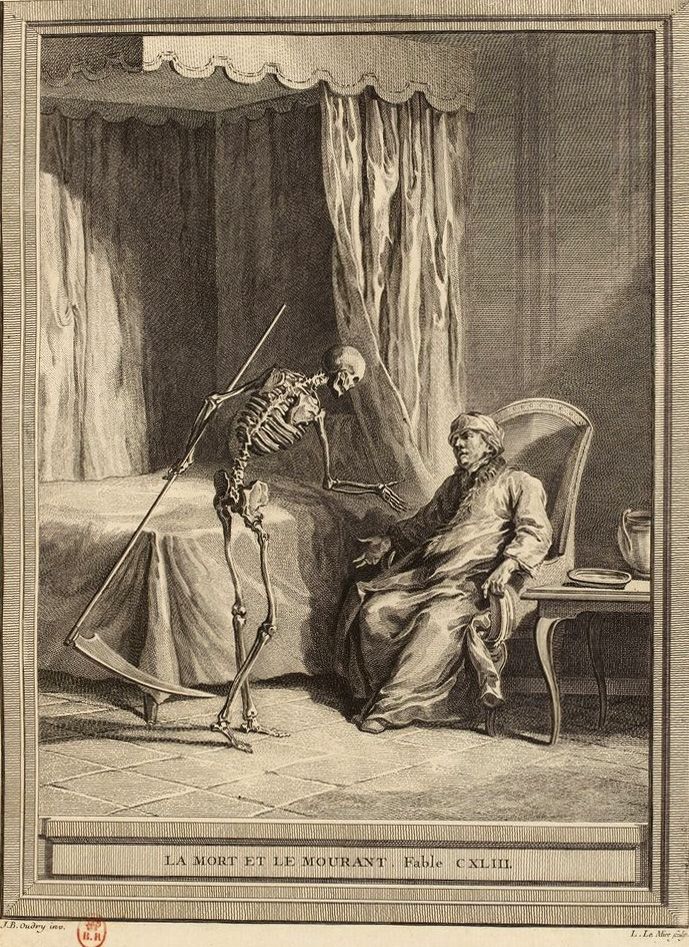
I was distracted this morning by an adventure in the garden with a pupating caterpillar who I briefly mistook for a dying one. I relocated them to where they could die in better comfort, away from plants we meant to harvest; then my owner and I did some research and subsequently I moved the caterpillar back to where they began amid the parsley that had been both their food and their chosen place of metamorphosis. I am trying to use they rather than the impersonal it. I hope the interruption to this creature's life will not impede them forming their winter chrysalis and emerging many months from now as a black swallowtail.
But the situation did delay me starting this newsletter post, and I feel like my mind is off somewhere else, unable to focus on the original prompt. It's Friday, hello, etc., but I meant to write out some feelings on the rise of death salons and the death positive movement, and now the world has slapped my clumsy self with a reminder that in many contexts where death is superficially observed, it is only another phase of life. As we tarot readers keep saying: XIII is not literal death but rather transformation.
Fitting, I suppose, that today is also Friday the 13th.
I think I can still write, but just as last week I wrote a poem, today I think the meditations will come as fragments, vignettes, wonderings. This is another Last Quarter post, so it can weigh heavier than some. Besides wholly concerning death there will be some brief but vivid examinations of suicidality.
Caskets
When I was seven, my grandfather's mother died. We traveled a few hours for the funeral. I had barely met her but I suppose she was the great-grandparent whose lifespan had the greatest overlap with mine. She was deeply Catholic so the funeral itself took place as an elaborate Mass, the first I attended, long before my own couple years of Catholicism. There was also a wake beforehand where this ancestor's body lay in an open casket. It was the first and only time I ever saw a human corpse. In my memory she had coins on her eyes, but I don't know if my mind has imposed that notion after the fact. I wish that I could remember it all much better. I think if she had meant more to me, I would have.
My grandfather himself died two years ago, following a years-long decline after a traumatic brain injury. He had lived nearly as long as his mother had. I thought that because he had kept her faith so strongly, his funeral rites would go much the same. Immediately, though, it became a broken-up process. He had been a naval captain, and the plans were to lay him by my long-dead grandmother in Arlington; there is an enormous queue for that process. So a memorial reception of sorts was held the same season that he died, but then it was another year before his remains were buried. During that time I never saw the body at all. The memorial included a casket viewing, but the casket was closed. During the funeral of course it stayed closed as well; I think whatever remained inside by then, no matter how well chilled, would have been a nightmarish sight.
I was quietly devastated that the casket wasn't at least open at the memorial, however. Maybe the body would have already degraded too much, but it didn't feel fair that I had seen my great-grandmother's body as that of a practically anonymous stranger, whereas I had grown up seeing this man at least once a year and even as we drifted apart for various reasons in my adulthood he was still my favorite grandparent. That's always strange for me to say, because by my teen years I had tortured feelings about his military career and his conservatism; but he was a good grandfather. He may not have always understood me, yet he supported my creative work with a will of iron, practically commanding me to stick with writing. He showed a baseline respect for wherever I was at in my gender evolutions. He loved some things more than the war machine: gardening (as I think I've written about before) and the sea.
I will always lament that we never found a chance for him to teach me to sail, as I had once hoped. When he had his accident that caused the brain injury, he was in a coma for at least a few days. I hadn't been Catholic for years, but after I got the news I knew I had to pray for him in that language, Hail Mary, full of grace, the Lord is with thee — and near my day job I found a chapel where I cried for a long while and lit a votive candle for him.
In that chapel a man tried to pick me up, offering slimy condolences and a supposed ride to where my grandfather lived. I left quickly after that, watching my back until I was safely back on the subway. I lived in the city then, I don't now, but I still think about that man and how many people he may have successfully preyed on in their grief as they sought the spiritual refuge on some form of sacred ground. My reckoning there with death — my bargaining with it — was polluted and predated.
And then, years later when my grandfather really did die, I couldn't see him or touch him. All the business of death was behind closed doors.
Panic
I feel closer to being at peace with death than I have ever felt before, and yet I am still afraid, only by a lesser degree than in my youth. I used to have panic attacks at the thought of my own unavoidable death. Now I don't feel at risk of such attacks unless I sense an active threat to my life — whether real or imagined. Otherwise if I think of my mortality I simply say to myself that I don't feel ready and hope fervently that I will get to take care of certain things before the time comes. I am not excited to forever lose consciousness and discover (or not) what comes next, but I have lost some pride around believing I should be exempt. If someone offered me immortality, I wouldn't take it.
At times in my adulthood I've experienced suicidal ideation. Sometimes it's been from particular traumatic catalysts, other times it's been an outgrowth of heightened anxiety or a depressive spell. The strange thing that I would have trouble describing to the unfamiliar — the thing that I could never have understood myself until I went through it — is that aggressively, intrusively thinking of suicide is not the same as wanting to do it. I have almost never thought of killing myself and felt like I should take steps to really make it happen. Usually it's a violent, spasming part of my mind presenting images to itself of ways that I could end my life, fantasies of walking into traffic or driving a knife into my body, and the outcome is not necessarily death itself but simply an intense reset of my life. Someone might rescue my catastrophically injured self, and as I recovered the entire universe would somehow understand I needed to be handed the things I'm lacking so that I could finally have a truly rewarding existence.
It's the cry for help, as they say. I cry whenever it happens — not often at the moment, but still very occasionally — because the graphic imaginings are horrific and because it comes from the part of my brain that I wholeheartedly consider crazy. How would hospitalizing myself really guarantee me a few million dollars and a multi-month vacation? How could I neglect my responsibilities to other people? How could I show such ingratitude to my owner, who already takes care of me in certain ways and doesn't deserve to be frightened by my behavior or grieved by a successful suicide? I don't want any of that. My mind is simply collapsing in on itself when it happens, spinning up fever dreams of ways to escape the extractive system governing me and destroying the world.
Once again it's never about death, but about the transformation.
Embrace
Ten months ago I wrote of death work. Death work is neutral. It looks at death neither as a grievance nor as a glory, only as a thing that must be squarely faced. All living things eventually die, so there must be a practice and process for relating to those moments, and to the decomposition that follows. In that post I said I was not really thinking about death positivity.
But now I am. Such a phrase: the death positive movement. Lacking context, what do other people think when they hear or read that? Does it seem like endorsement of suicide? Euthanasia? Voluntary human extinction? Does it seem like a rapturous gaze ahead at the afterlife, as millions of Christians who are forbidden to kill themselves nonetheless long to die sooner rather than later?
I think that of course the phrase is a little provocative even though it doesn't mean any of those things. It was coined by activist-mortician Caitlin Doughty in the context of her non-profit known as the Order of the Good Death, which I encountered through my owner when he was following Doughty's "Ask a Mortician" videos online. According to the Order of the Good Death itself, death positivity refers to the following:
I believe that by hiding death and dying behind closed doors we do more harm than good to our society. I believe that the culture of silence around death should be broken through discussion, gatherings, art, innovation, and scholarship. I believe that talking about and engaging with my inevitable death is not morbid, but displays a natural curiosity about the human condition. I believe that the dead body is not dangerous, and that everyone should be empowered (should they wish to be) to be involved in care for their own dead. I believe that the laws that govern death, dying and end-of-life care should ensure that a person’s wishes are honored, regardless of sexual, gender, racial or religious identity. I believe that my death should be handled in a way that does not do great harm to the environment. I believe that my family and friends should know my end-of-life wishes, and that I should have the necessary paperwork to back-up those wishes. I believe that my open, honest advocacy around death can make a difference, and can change culture.
My reading of statements like this is that to be death positive is to acknowledge death at all, which hegemonic culture forbids, and to preserve or rekindle the settings in which death has been fully integrated into a community's rhythms. It is to not only engage in death work as necessary work on its own terms, but to engage in death work as a matter of activism, consciousness-raising, paradigm-shifting, insert transcendent phrase here. The movement in question was preceded by earlier awakenings around matters like natural (that is, ecological) burial, self-elected euthanasia, and improving hospice care.
My grandfather had been a passionate hospice contributor for decades before his accident.
Gloom
I am a goth. I like making that point frequently because even though the subculture has existed for forty years and gone through many changes, there are many sectors of society in which it's still the butt of jokes. I don't mean to define goths as a systemically oppressed group (although of course many of us belong to those groups); but I do mean that many people have derisive and ignorant opinions about why anyone would become a goth.
To the most mainstream, WASPy swaths of mass culture, the goth is comically depressed and pretentiously hung up on a longing for a very romantic notion of what death is. There are the jokes about being allergic to color in our wardrobes, and everyone making those jokes as an outsider thinks they're incredibly clever and not that we've heard the comments five thousand times before. In the still relatively mainstream but adjacent cohort of geek culture, the goth is both an intriguing curiosity and a bit funny, represented by the Pauley Perrettes — we look gloomy, but we act chipper. In the amorphous pits of alt-dark subcultures themselves, the goth is frequently welcomed because of starting and belonging there, but in more masculinist segments the goth is still an embarrassingly female-coded, frilly interloper. Even among many goths themselves, being too sincere about the identity is worth mockery, despite the fact that a fair amount of performed authenticity is necessary to avoid equal criticism for just looking like a Hot Topic model.
I hardly ever get caught up in that sort of infighting, though I know it's there. Mostly I think of how to non-goths we are conceptually threatening. There is the inherent femininity but it is not traditional femininity. My own gender is goth more than it is standard womanhood. The goth is self-sexualizing, a creature of extravagantly accented spectacle, but amid the jewels and ribbons are spikes and chains, and behind the black lips are fangs.
Some people would like nothing more, of course, than to fuck goths, and there is an entire porn market for it. I almost always know when a man is talking to me because I'm a gothic fetish object.
But more than the sexual and gender questions, the visual goal of a goth is either to look physically dead or — since pallor needn't be a requirement, which racist goths forget — to present as such a dark void that the only possible associations can be funereal. Black is not the color of death in all cultures, but it is in the hegemonic one, so here we are. It begs the question of whether a goth must actually care about or long for death, or whether it's simply an aesthetic.
I have admittedly always been a gloomy enough person that becoming a goth may have proven as inevitable as death itself. Some aesthetics were certainly at play; I wore more color when I was younger, and even now I don't shirk it all together, but in my early teen years I at least discovered that black not only compliments my appearance as well as it does many people's, but it even particularly suits me. Being also drawn to highly theatrical accessories and preferring my makeup in two modes (none, or full drag) I started slowly collecting and assembling a look. Eventually I started to understand the music that originated the subculture in the first place. And as I've grown more self-aware, I've begun to reflect that I have relied on death positive resources to help address my fearful attitude toward death by giving death a place in my life.
If a goth must do that, I am not sure, but I know what I do as a goth.
Salons
I'm not sure if the death salon is the primary vehicle by which death positivity grows these days, but it's a visible one on account of how strange it sounds. Death salon. Alternately, death café. That might be even stranger. Mingling death with eating does not go over well in a culture where the death required to eat — including the death of plants, which are no less prone to suffering than animals are — must be shuffled behind a curtain and ignored. Yet perhaps you've seen these salons and cafés advertised on occasion, especially in chic urban environments. The way I understand these events is as miniature conventions in an either domestic or casually communal setting, where people with an interest in death topics gather to perhaps eat, perhaps socialize, but more importantly to share information about death, whether through presentations or through other formats. Unlike an academic setting, the fees for entry are rather low, and the lessons are compressed; unlike a professional training for people in death work, it is open to anyone who wants to know more about any aspect of death. Come for an afternoon and walk away with greater knowledge of anything from decomposition to funeral home administration, from religious rites to the art of morbid artists, from famous corpses to relevant case law. Why would anyone want to go out of their way to learn these things? some would ask, and be told, Come to the salon and you'll see.
I have never gone to one. I completely understand why the death salon has arisen, but I haven't yet felt compelled to see what any are really like. I would like to, perhaps, if the opportunity arose, but I feel some of my own trepidation — what kind of other death-interested people would I meet?
It could be analogous to a kinkster's first munch; still feeling shame around their desires, they can only imagine that everyone else around them will be wretchedly perverse as well. (Of course almost nobody would like to explore the direct intersection of kink and death, but that's for the best.) However, in this case it isn't shame but rather that lingering fear. To confront my fear of death or at least brush up against it among people I've never met, this would be a threshold of vulnerability I may not be ready to cross, even as I have gotten naked at kink parties around people I've never seen in my life.
In fairness to myself, I now live further away from where must such events are held in my area. Perhaps I should try to assemble a death salon of my own; then again, I am barely even a death worker myself, merely a witch who keeps getting pulled closer and closer to it.
Critique
I wonder if death positivity can survive the mass consumption mill, the grinder, the chum bucket. I have great respect for the movement's current leaders like Doughty, and I regard her as a mature and extremely self-aware person, so she and her equivalents aren't my concern; if there's a way for them to "sell out," I couldn't say. But sometimes I catch myself in a cynical mood about this movement — indeed, I don't actually consider myself part of it, only massively sympathetic — because the soft, subtle war it's fighting goes against requirements of the system it operates in, and thus at some point the neoliberal maw will have to open and swallow it up and reproduce a more assimilated version, cut up and clickbaited and hollowed out and discarded. Maybe this is already happening.
Just as many people step into anti-oppression workshops to navel-gaze, ask awkward questions, feel terrible for a few hours, then go back to their regular lives, what if the death salon became a means to tidily keep death compartmentalized but make people besides death workers feel as if they're really integrating awareness of death into their lifestyles? What if the grotesque particularities of death became celebrated in a nihilistic way? The planet is fucked, I am mortal, praise our rotting. I feel related ways about euthanasia advocacy; on the one hand I unabashedly support euthanasia, and on the other hand the corporate state can be convinced all too easily to twist euthanasia into eugenics, a quiet execution for undesirables.
Is a greater awareness of death enough for a revolution in death, and is a revolution in death — if we can decolonize it, ecologize it, repair our relation with it — enough to stop unjust, extractive deaths from occurring?
My impression up until now is that the best members of death positive movement, who are the majority of what I've observed, cast their net far enough that their vision does indeed carry a class analysis and does indeed look beyond memes, signals, and nerdery. I feel caution, though, because just as it takes financial or temporal capital to go back to school for entering the death industry, it also takes that capital for someone to attend a death salon, invest in their own home funeral tools, or arrange their preferred circumstances of death and disposal. If we are to take death more into our own hands, in many cases those hands must be unchained first. The people doing this advocacy work are likely, albeit not guaranteed, to have some affordance for it — to benefit from institutions they might need to destroy. How many of them are ready for that destruction?
Prayer
I do not know if I can pray to Death. I pray to very little. I think even the Devil is only interested in my prayers in certain moods. Is the Devil himself Death? The tarot distinguish. I suppose I do as well. The Devil is an ethical process; Death is purest metaphysics.
But I wish for better relation with thee, Death, so though I cannot worship thee, perhaps I can make a prayer of another kind. Show me how I might personify thee, and know thee in my heart. Step out from behind that closed door. Who art thou?
What I see is a shifting shape. Ancestral and personal memories have swirled together. There is the Reaper, and there is the Hag of the Mist. There is Gwyn leading the hunt. There is the Black Rabbit. There are the Northern Lights. There is Hermes, and Hades, and Kharon in between. There is Azrael. There is — lord help me — Death the goth, stepped from a silly comic. There is the woman who has come to my home twice to send cats to sleep. There is myself. I have killed things, not only indirectly but with my own hands, ants and plants, flies and spiders, and other lives. I would like any more death I cause to come with greater intention and value.
I am thinking of the caterpillar from this morning. Which transformation of theirs have I facilitated?
Please tell me, Death, and let me know it is thy voice. Yet do not show thyself too completely, for as I have said:
I still seem not to be ready.
Thank you for reading. Next week I have a satanic interpretation of Dionysos, but it's for paid readers only. It costs only $1/month to read posts like those and coax Salt for the Eclipse further out of the red. I would strongly appreciate the help as I'm constantly in a severe financial pinch and it's likely to get worse over the winter. But after next week's paid post, I will be doing another free post, this time on so-called kitchen witchery.

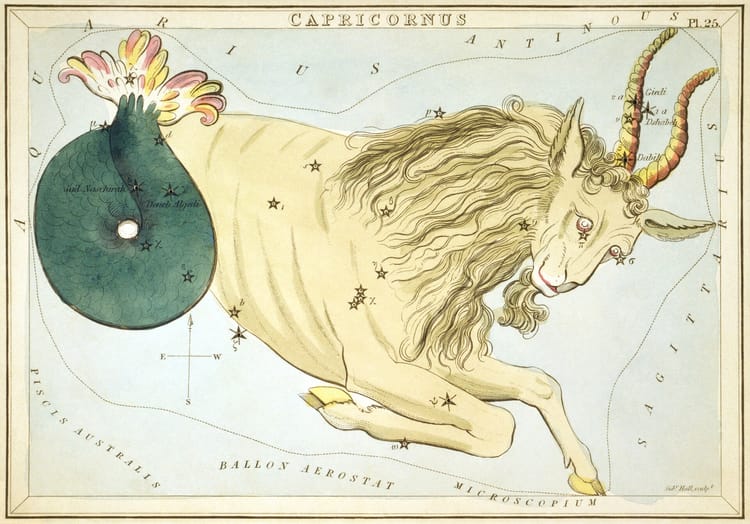
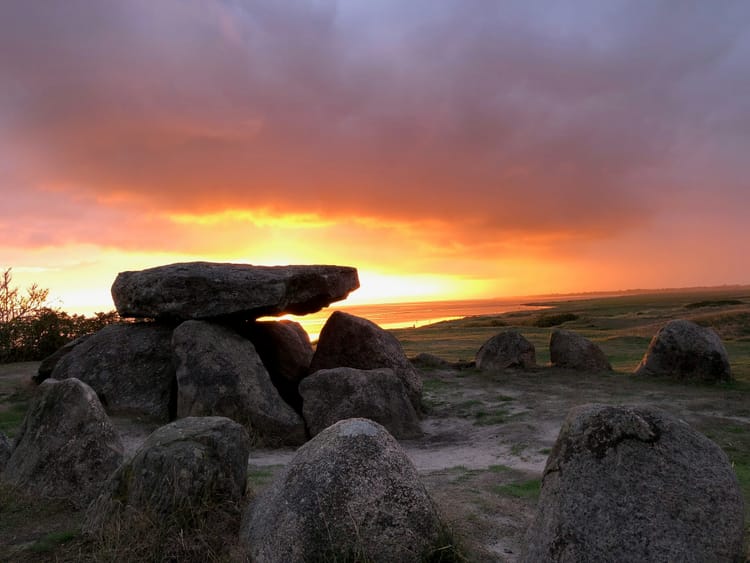
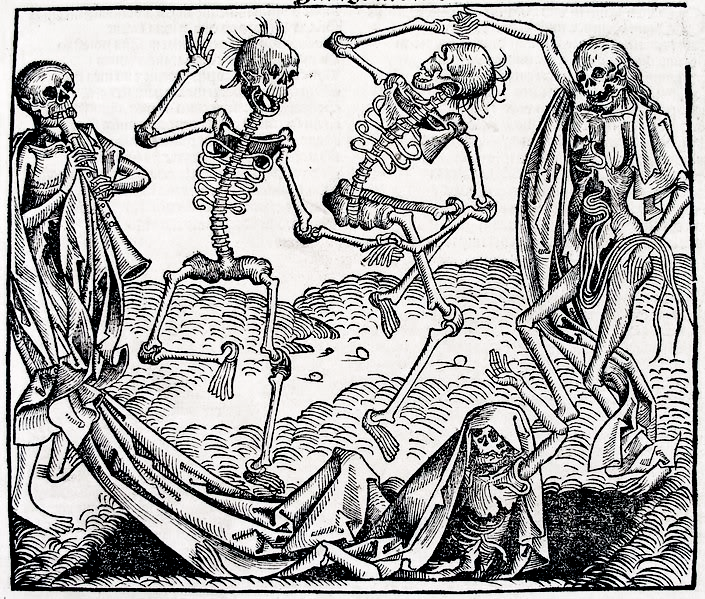
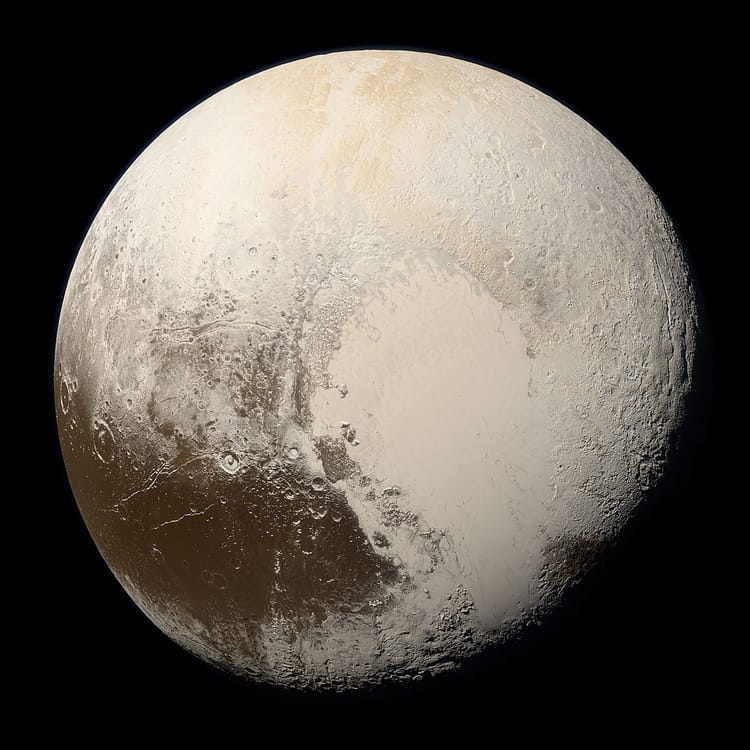
Member discussion